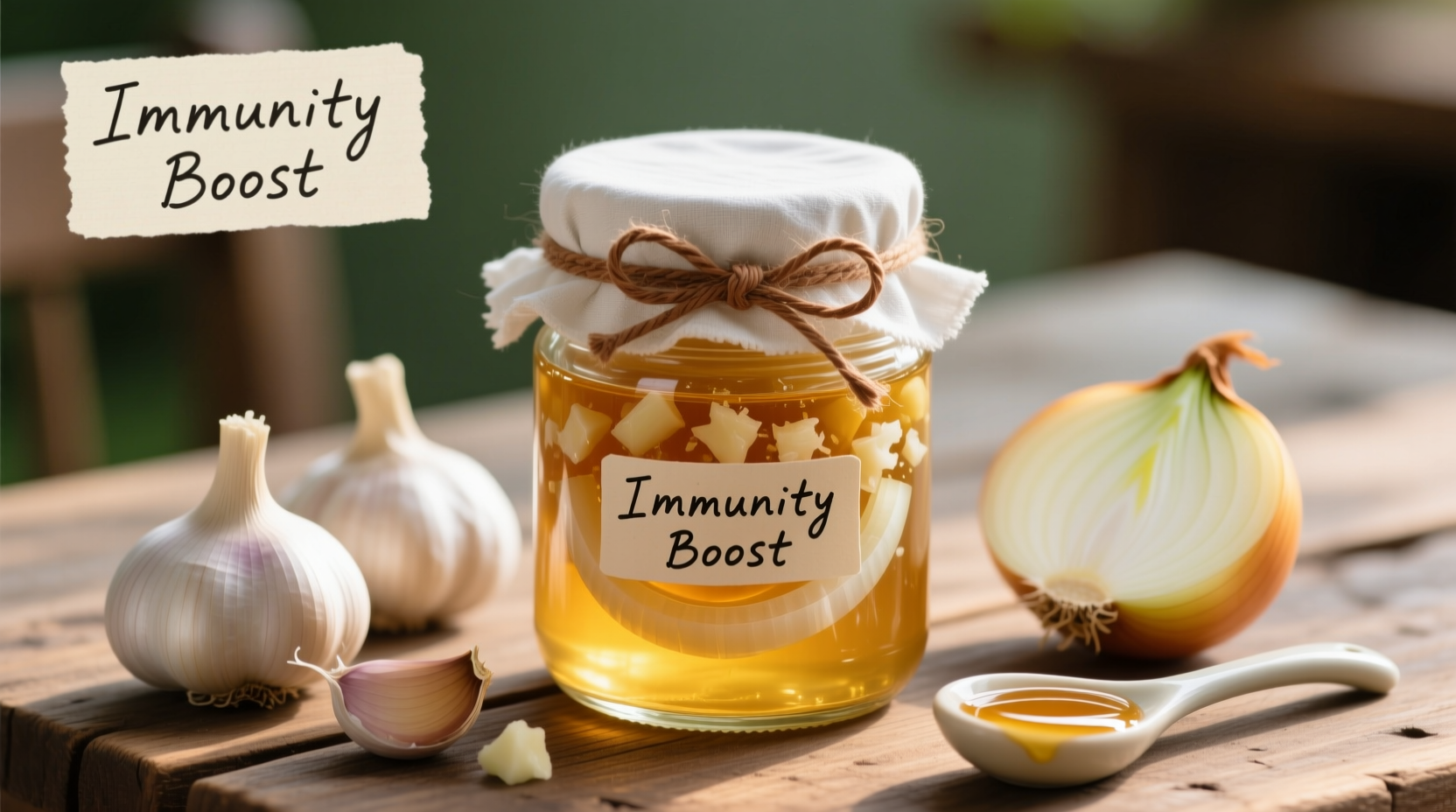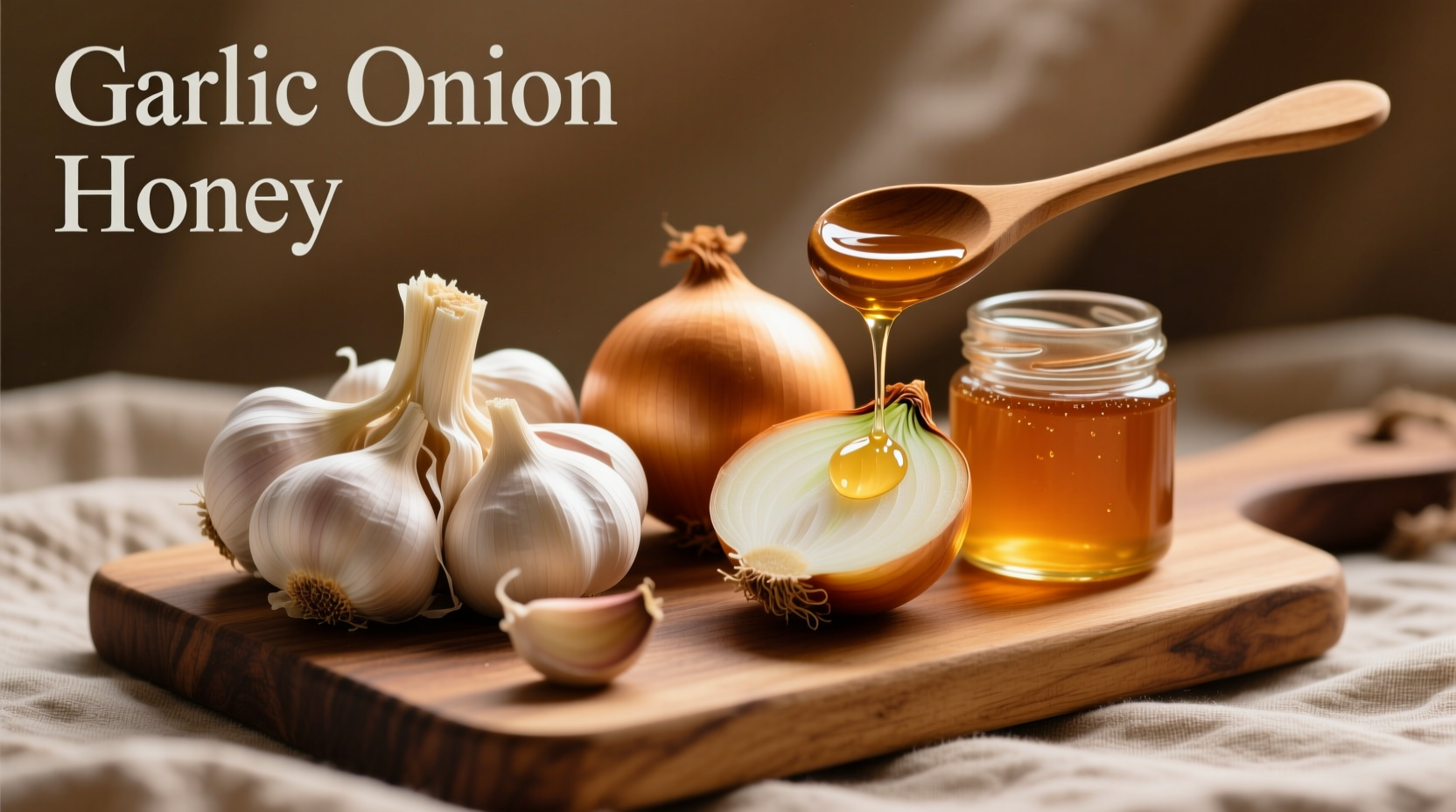Why This Simple Remedy Has Endured for Centuries
Throughout history, cultures worldwide have turned to garlic onion honey when facing respiratory discomfort. This combination isn't just kitchen folklore—it represents centuries of observational wisdom about natural ingredients. Modern research now helps us understand why these particular components work well together.
The Science Behind Each Ingredient
Understanding what makes garlic onion honey potentially beneficial requires examining each component's properties:
| Ingredient | Active Compounds | Documented Properties | Research Source |
|---|---|---|---|
| Raw Honey | Hydrogen peroxide, methylglyoxal | Antibacterial, soothes mucous membranes | NIH Study |
| Garlic | Allicin, ajoene | Antimicrobial, immune-modulating | NIH Review |
| Onion | Quercetin, allicin derivatives | Antioxidant, anti-inflammatory | NIH Analysis |
How to Prepare Garlic Onion Honey Properly
Making an effective garlic onion honey remedy requires attention to preparation details that maximize potential benefits while ensuring safety:
Step-by-Step Preparation Guide
- Select quality ingredients: Use raw, unprocessed honey (not pasteurized), fresh organic garlic, and yellow onions
- Proper ratio: Combine 1 cup finely chopped onion, 3-4 crushed garlic cloves, and 1 cup honey
- Extraction time: Let mixture sit covered at room temperature for 12-24 hours before use
- Storage: Keep in airtight container in refrigerator for up to 2 weeks

When Garlic Onion Honey Might Help (And When It Won't)
Understanding the appropriate context for using this remedy prevents misuse and sets realistic expectations:
Appropriate Use Cases
- Early symptoms of common cold or mild sore throat
- As a natural cough suppressant for non-productive coughs
- Supporting general immune function during cold season
Important Limitations
- Not for children under 1 year due to botulism risk from honey
- Not a substitute for antibiotics in bacterial infections
- Not effective against influenza or serious respiratory conditions
- Should be discontinued if symptoms worsen or persist beyond 3-5 days
Safety Considerations You Should Know
While generally safe for most adults, garlic onion honey has important considerations:
- Raw honey carries a small risk of botulism spores (never give to infants under 12 months)
- Garlic may interact with blood thinners like warfarin
- Onion and garlic can cause heartburn in sensitive individuals
- Discontinue use if you experience allergic reactions like itching or swelling
Historical Timeline of This Traditional Remedy
The use of garlic, onion, and honey as medicinal agents spans millennia across diverse cultures:
- Ancient Egypt (1550 BCE): Ebers Papyrus documents honey and garlic for wound treatment
- Greek Medicine (400 BCE): Hippocrates prescribed honey and garlic for respiratory ailments
- Ayurvedic Tradition: Onion and honey combinations appear in ancient Indian medical texts
- Medieval Europe: Monastic medicine combined these ingredients for cough syrups
- Modern Research (2010s): Scientific studies begin validating antimicrobial properties
Practical Usage Guidelines
For those considering trying this traditional remedy, follow these evidence-informed recommendations:
- Dosage: 1-2 teaspoons as needed for throat discomfort (max 3 times daily)
- Best consumption method: Take directly or mix with warm (not hot) water
- When to expect results: May provide symptomatic relief within hours for mild irritation
- When to consult a doctor: Fever over 101°F, difficulty breathing, symptoms lasting more than 5 days
Complementary Natural Approaches
Garlic onion honey works best as part of a comprehensive approach to respiratory wellness:
- Adequate hydration with warm fluids
- Sufficient rest and sleep
- Humidified air to soothe irritated airways
- Gargling with salt water for sore throat relief
- Honey alone (without garlic/onion) for children over 1 year











 浙公网安备
33010002000092号
浙公网安备
33010002000092号 浙B2-20120091-4
浙B2-20120091-4